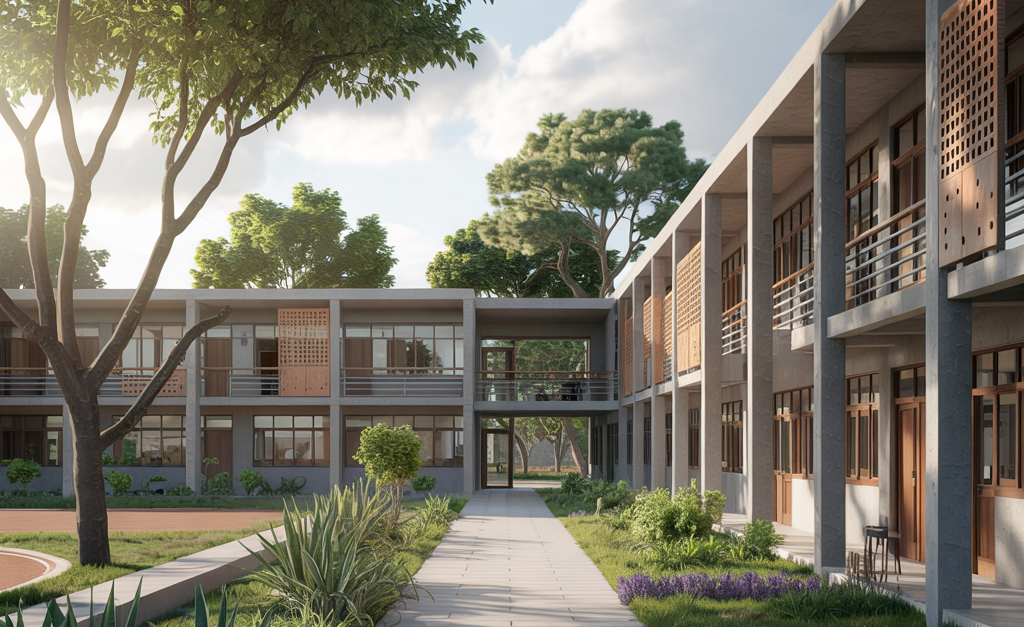Ja Rule’s Philanthropy: Transforming Education in Ghana Through School Building.

In recent years, the hip-hop world has witnessed many artists giving back to their communities, but few have taken it as personally as Ja Rule. The multi-platinum rapper, known for his chart-topping hits, has embarked on a transformative mission in Ghana—building a school to provide better educational opportunities for underserved children. Since his first visit, Ja Rule has shown unwavering commitment to uplifting the community, proving that true influence goes beyond music and celebrity status.
A Cause Worth Celebrating
Ja Rule’s initiative deserves widespread recognition. Many celebrities talk about giving back, but few take meaningful action. His investment in Ghana’s education system is a testament to his dedication to creating lasting change. The school project not only provides access to quality education but also serves as a beacon of hope for young students who aspire to break the cycle of poverty through learning.
While private efforts like Ja Rule’s school are commendable, they also expose the glaring failure of the state, the Ministry of Education, and local municipalities in providing quality public education infrastructure. The fact that colonial-era school buildings still dominate Ghana’s educational landscape in 2025 is unacceptable. If Ghana is serious about equipping the next generation with the tools they need to succeed, urgent reforms in public school infrastructure must take place.
The Colonial Legacy Holding Ghana Back
Ghana’s public schools still rely on outdated colonial-era designs that are no longer conducive to modern education. These buildings, with their rigid layouts, lack of proper ventilation, and minimal technological integration, do not foster an environment that nurtures creativity, critical thinking, or digital literacy. As we push towards an era driven by innovation, it is imperative to rethink how we design and structure public schools.
Practical Design Ideas for Public Schools in Ghana

To truly revolutionize public education, Ghana must adopt modern, student-centered school designs that prioritize accessibility, sustainability, and technological integration. Here are a few practical ideas:
- Open-Air, Climate-Responsive Classrooms
- Utilize natural lighting and ventilation to reduce reliance on electricity.
- Incorporate green spaces and shaded outdoor learning areas to promote a more interactive and engaging learning experience.
- Modular and Expandable Structures
- Schools should be built with modular designs that can be easily expanded based on student population growth.
- Use locally sourced, sustainable materials to reduce costs and environmental impact.
- Smart Classrooms with Digital Learning Integration
- Equip classrooms with smart boards, high-speed internet, and digital libraries.
- Provide students with affordable tablets or laptops to facilitate digital learning and remote education options.
- Multipurpose Learning Hubs
- Schools should not just be places for lectures but should also serve as community learning centers.
- Integrate workshops for vocational training, entrepreneurship, and technology skills development.
- Solar-Powered Schools
- Implement solar energy solutions to ensure uninterrupted learning in areas with unreliable electricity.
- Partner with renewable energy organizations to make this transition affordable and scalable.
- Child-Friendly and Inclusive Design
- Ensure school buildings are disability-friendly with ramps, elevators, and adaptive learning spaces.
- Design play-based learning areas that stimulate cognitive and social development.
- Water and Sanitation Infrastructure
- Clean drinking water and hygienic restroom facilities should be a priority.
- Install handwashing stations and proper waste disposal systems to promote hygiene and health.
A Call to Action
Ja Rule’s philanthropic efforts highlight what can be achieved when individuals take action to uplift communities. However, it should not take international celebrities to do what the state should have been doing all along. Ghana’s education system needs an urgent infrastructure overhaul, and the government must take responsibility. Public-private partnerships, increased education funding, and innovative architectural designs can create a sustainable, modern learning environment for future generations.
The time for patchwork solutions and temporary fixes is over. Ghana must invest in education infrastructure that matches the aspirations of its youth. If a hip-hop artist from the U.S. can build a school that inspires change, what excuse does the government have for maintaining the status quo? The future of Ghana’s children depends on the choices made today. Let’s choose progress over nostalgia and build a public school system worthy of the 21st century. Your comments are welcome below.
The Equatorial Gulf is a free-thinking news brand, providing the continent and global news, commentary, and analysis for the independently-minded. We are cultivating a vast, global readership of independently minded individuals who value our trusted voice and our commitment to positive change. Our core mission is to drive change that benefits humanity.
Comments ()